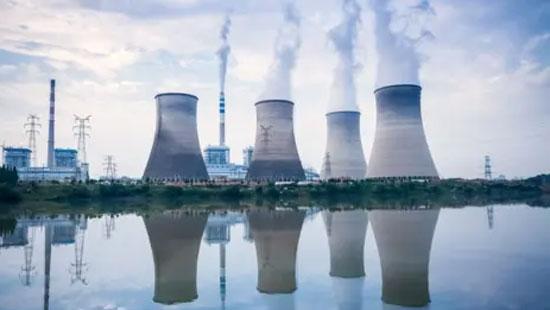29 May 2024 - {{hitsCtrl.values.hits}}
 Despite President Xi Jinping’s 2021 pledge to "strictly control" coal-fired power plants, China has seen a surge in coal consumption, accounting for 95 percent of new coal power plants built worldwide in 2023, according to a report by Global Energy Monitor (GEM). This rise undermines China's climate commitments as the largest polluter globally.
Despite President Xi Jinping’s 2021 pledge to "strictly control" coal-fired power plants, China has seen a surge in coal consumption, accounting for 95 percent of new coal power plants built worldwide in 2023, according to a report by Global Energy Monitor (GEM). This rise undermines China's climate commitments as the largest polluter globally.
China mined 4.66 billion tonnes of coal in 2023, which registered about 3 percent increase year-on-year. More than half of countries reduced their coal-fired power plant capacity under development since the 2015 Paris Climate Agreement. However, the operating coal power capacity has increased since China has been on a coal consumption spree.
GEM said the increase in new coal plants coming online in China was 47.4 gigawatts, which accounted for 68 percent of total global additions. “In China, the exact opposite happened, with new construction starts increasing for the fourth year in a row and hitting an eight-year high, which is out of line with President Xi’s 2021 pledge to “strictly control” coal projects,” it said in its latest report.
Flora Champenois, an analyst at GEM, demanded China adopt stricter controls on the development and usage of new coal plants. “Otherwise we can forget about meeting our goals in the Paris Agreement and reaping the benefits that a swift transition to clean energy will bring,” she said.
Coal is still a major source of energy generation in China. It accounted for 60.7 percent of power output in 2023. With increased local mining, China has been also importing higher amounts of coal to meet the growing domestic demand. China imported 45.25 million tonnes in April 2024, which was almost 10 percent higher than that just a month.
The prices of coal have become cheaper in the global market. This has prompted China to refill its stock through imports. The coal imports by China during January-April 2024 were 13.1 percent higher compared to the corresponding period last year.
The reason for China’s reliance on coal is the unreliable and intermittent nature of renewable energy facilities built in the country. “China was suffering power shortages a couple of years ago, hydro[power’s] been very weak the last couple of years, so they’ve had to revert back to coal,” said Ian Roper, commodity strategist at financial consultant firm Astris Advisory Japan.
In 2022, China witnessed unprecedented heatwaves, which led to a surge in electricity demand. Since renewable energy resources are not efficient and adequate, China resorted to burning more coal. “Chinese officials view coal as the primary guarantee of energy security,” said Anders Hove, senior research fellow at the Oxford Institute for Energy Studies.
The growing usage of coal by China is in stark contrast to global trends, said GEM. China’s new coal energy facilities in 2023 amounted to 70.2 gigawatts, which was 19 times more than the rest of the world’s 3.7 gigawatts. Interestingly, the approval of new coal power plants has increased by 400 percent since Xi’s 2021 pledge.
China has at least 1,142 operational coal-fired thermal plants, which is too high from 282 in India and 210 in the US. China's increasing reliance on coal is causing higher emissions, which has made climate action difficult. “China risks missing several climate targets it set for 2025, unless drastic action is taken soon,” GEM noted.
There are concerns that coal use in China is likely to increase at least until 2026. This would derail China’s climate commitment and fight to keep global temperatures below 1.5 degrees Celsius. According to Climate Analytics and NewClimate Institute, growing reliance on coal and lack of absence of phaseout plan are making China lag in fulfilling climate commitments. “While the global coal pipeline outside of China is shrinking, China’s coal plant permitting spree is a cause for concern,” they noted.
Chinese government has failed on its promises to make necessary cuts in coal, said the Helsinki-based Centre for Research on Energy and Clean Air (CREA). “It is very alarming that the government is not articulating a plan on how they are going to hit an internationally-pledged target,” said Lauri Myllyvirta, cofounder of CREA.
25 Dec 2024 46 minute ago
24 Dec 2024 24 Dec 2024
24 Dec 2024 24 Dec 2024
24 Dec 2024 24 Dec 2024
24 Dec 2024 24 Dec 2024